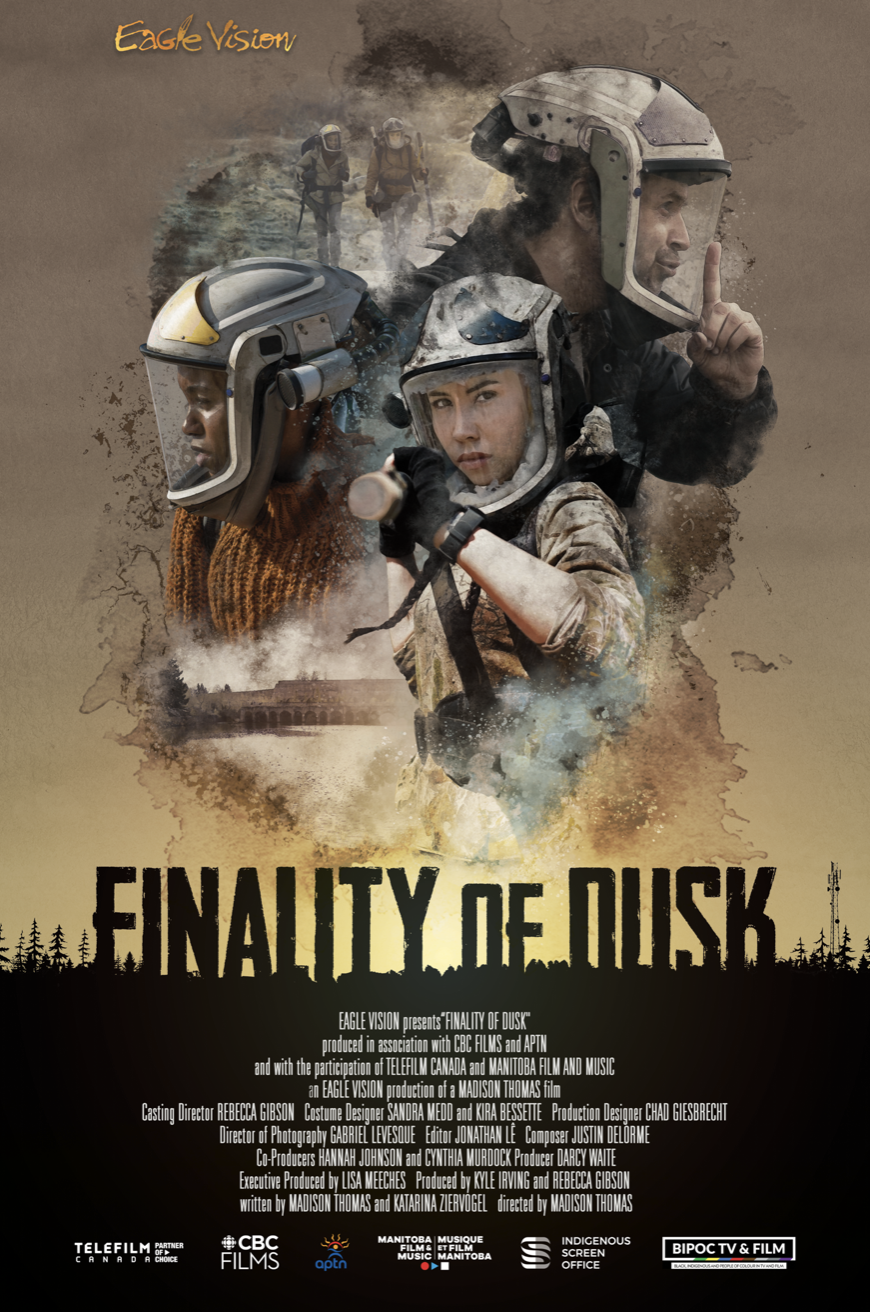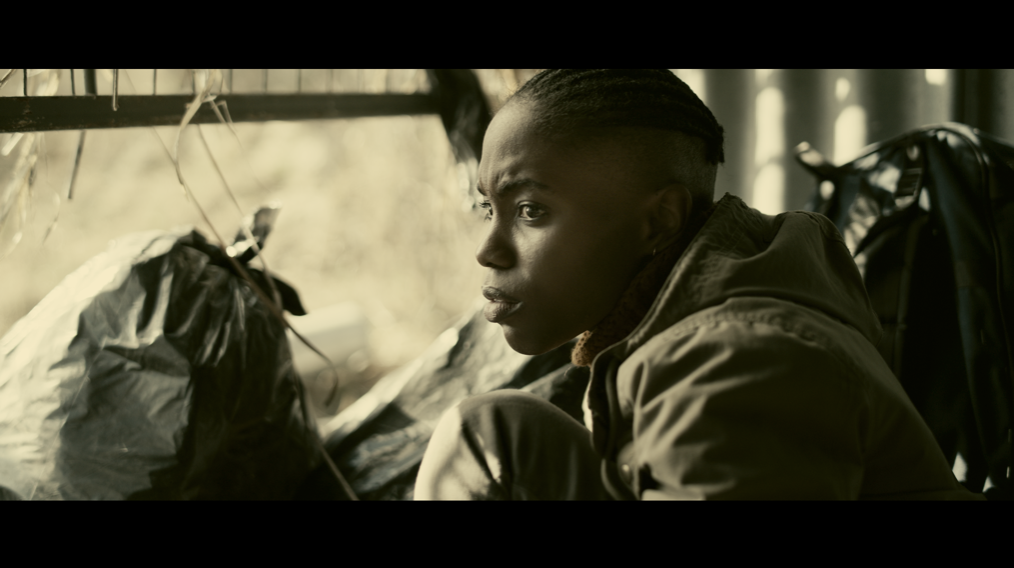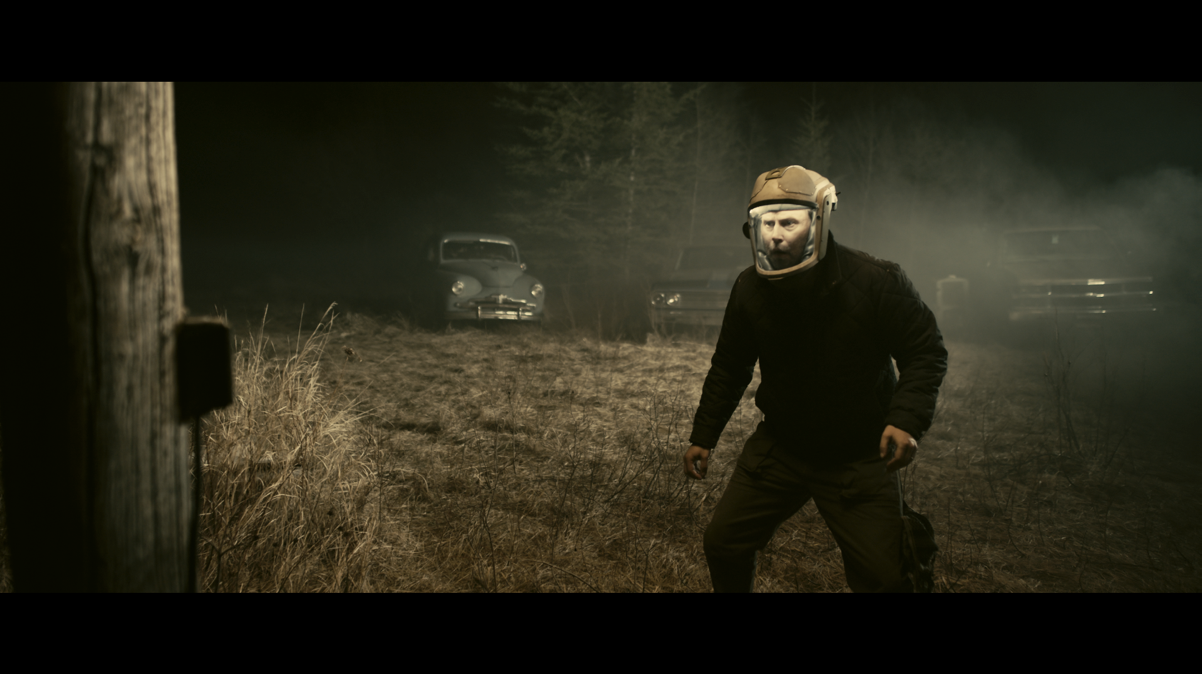Finality of Dusk is a quiet, but intense movie set in post-apocalyptic Winnipeg.
We had an opportunity to have a conversation with co-writer Katarina Ziervogel, as well as performers Chris Dodd and Cherrel Holder at the Whistler Film Festival (WFF).
HNMAG: Katarina, where are you from originally?
Katarina Ziervogel: I’m originally from Edmonton, Alberta. I moved to Winnipeg when I was ten. I’m Ojibwe, Mohawk, and German.
HNMAG: When did you get involved in film?
Katarina Ziervogel: I started working as an intern for Eagle Vision. That’s led to a lot of opportunities and on Finality of Dusk I became a co-writer with Madison Thomas.
HNMAG: What was your first project?
Katarina Ziervogel: I worked on a show called Taken. It was about the missing and murdered Indigenous women. It was very instrumental in what I learned. That work shaped what I do now. It was an inspiration for the stories that I want to tell as a writer.
HNMAG: When did you start working on Finality of Dusk?
Katarina Ziervogel: That would have been 2018.
HNMAG: How did you cast this movie?
Katarina Ziervogel: We started during the pandemic, so the casting was over zoom, which was new to all of us. We were limited due to the pandemic and it was challenging. Our priority was to look locally first. It wasn’t easy. We wanted actors that had Indigenous backgrounds and Deaf actors. For the character Niife, they spoke Yoruba (Nigerian language). Cherrel was a perfect fit for that role. She was also local, which was ideal, we were very fortunate. She’s a rising star to watch. In terms of Chris, several Deaf performers across Canada auditioned for the role. It was very competitive. We wanted someone who was in line with the story. We went ahead with Chris because he was able to show that vulnerability while instilling some fear into it. He was perfect for the role of Odin.
HNMAG: Before you met Cherrel, did you already have the language in mind?
Katarina Ziervogel: The director Madison Thomas really wanted it to be a different language.
HNMAG: Cherrel, when did you move to Winnipeg?
Cherrel Holder: When I was eleven. I’m from Trinidad
HNMAG: When did you learn Yoruba?
Cherrel Holder: My brother-in-law is from Nigeria. All of my friends in Winnipeg are Nigerian, most Black people in Winnipeg are from Nigeria. My Mom took us to a Nigerian church when we were younger. When I told my sister and her husband about the role, he was excited to teach me more of the language. It was terrific for him to share his culture. I don’t know my true ancestry since slaves who were brought to the Americas don’t know exactly where they are from. I could be Nigerian?
HNMAG: When did you get involved in acting?
Cherrel Holder: My twin sister and I had a passion for acting when we were kids in Trinidad, but it wasn’t an option because there were no arts in our strict school system. We struggled because we were very creative. When we came to Canada, my Mom said we could do whatever we wanted in the arts. That’s what we did. Out of high school, I joined a theatre company. Then I moved to Australia to join a dance company and when I came back, a theatre director recommended that I audition for movie parts.
HNMAG: Are you going to stay in Winnipeg?
Cherrel Holder: I love Winnipeg. I don’t want to go anywhere else. My mom lives on a reserve. The Indigenous community is family to us. There is nowhere else in Canada where you have that family. We have the most reserves.
HNMAG: Chris, are you from Winnipeg as well?
Chris Dodd: No, I’m from Edmonton. I was born and raised there. I work across Canada but Edmonton is my home base. My parents are there. I have family there.
HNMAG: How long have you been acting?
Chris Dodd: Many years, I started in elementary school. I had a really good teacher in high school who encouraged my continued studies. I got a degree in drama from the University of Alberta and I’ve been acting for over twenty-five years.
HNMAG: Did you find out about Finality of Dusk through your agent?
Chris Dodd: Katarina also worked in Edmonton and she had known about me. She ended up getting in contact with me and asked if I wanted to audition. I really connected to the character. It was written through a Deaf lens and it was important to have proper representation. It was a perfect project.
HNMAG: Are you married and do you have children?
Chris Dodd: I do. I have two daughters. They can both hear. My oldest daughter is studying design at University on Vancouver Island. She could end up working in the film industry!
HNMAG: What are the creatures in the film?
Katarina Ziervogel: Because it’s set in a post-apocalyptic world, the creatures are mutants. They have evolved into that. The film is partially about survivors. They have evolved into these dangerous creatures because of the environment they have been exposed to without the protection of the masks.
HNMAG: Did they evolve from wolves?
Katarina Ziervogel: Like all the animals, some of the wolves went through a mutation while others did not. For example… in the film, there’s a non-mutated squirrel and a mutated squirrel with two heads.
HNMAG: The atmosphere seems to be ok for birds. Does it affect different animals in different ways?
Katarina Ziervogel: There are varying effects to the ecology but it’s pretty subtle.
HNMAG: How plausible is it that something like this will happen in twenty years?
Katarina Ziervogel: Anything is possible. You can’t predict tomorrow or two hundred years from now. We’re living proof now of how the change in weather is affecting us.
HNMAG: The movie is also about the challenges in communication. Can you elaborate on that?
Katarina Ziervogel: If you think of Niife and Ishkode, the two main characters, they both have different languages. Even their style of written language is different. They spend a lot of time trying to communicate through gestures, through body language. I was originally asked to join the project as a consultant. I shared some ideas and Madison asked me to be a co-writer. I had to envision the story visually.
Cherrel Holder: It was challenging for myself and my character because I had to find new ways to communicate beyond verbally. I was gesturing and using American Sign Language (ASL). I was non-verbal. I didn’t speak in the movie at all.
HNMAG: It was set in Winnipeg. Was there any consideration to set it anywhere else?
Katarina Ziervogel: No, we were set on having it take place in Canada and in Winnipeg. We never entertained any other location.
HNMAG: Where will audiences be able to see it?
Katarina Ziervogel: It will be on CBC Gem. It can also be seen through Whistler’s virtual component.
https://watch.whistlerfilmfestival.com/wff23/play/6541c277cddefb00981f13dc
Finality of Dusk is a unique and challenging Canadian film. It warns of the danger of our diminishing environment. It’s also about how difficult and frustrating it can be when facing communication barriers and how rewarding it can be when you overcome those obstacles. The movie is set in a post-apocalyptic Winnipeg. Yes, you can tell the difference. The team behind the movie is passionate about culture and storytelling.




